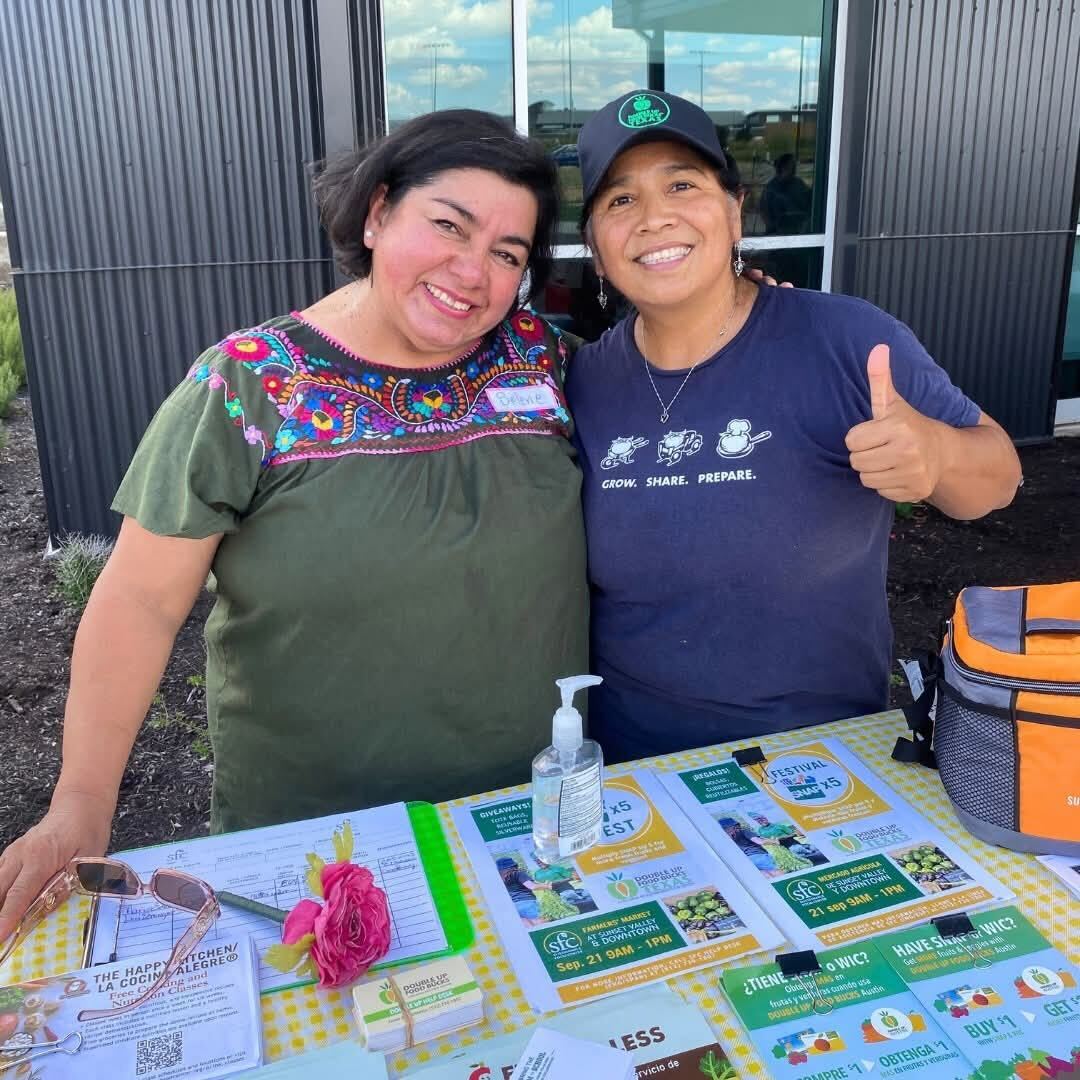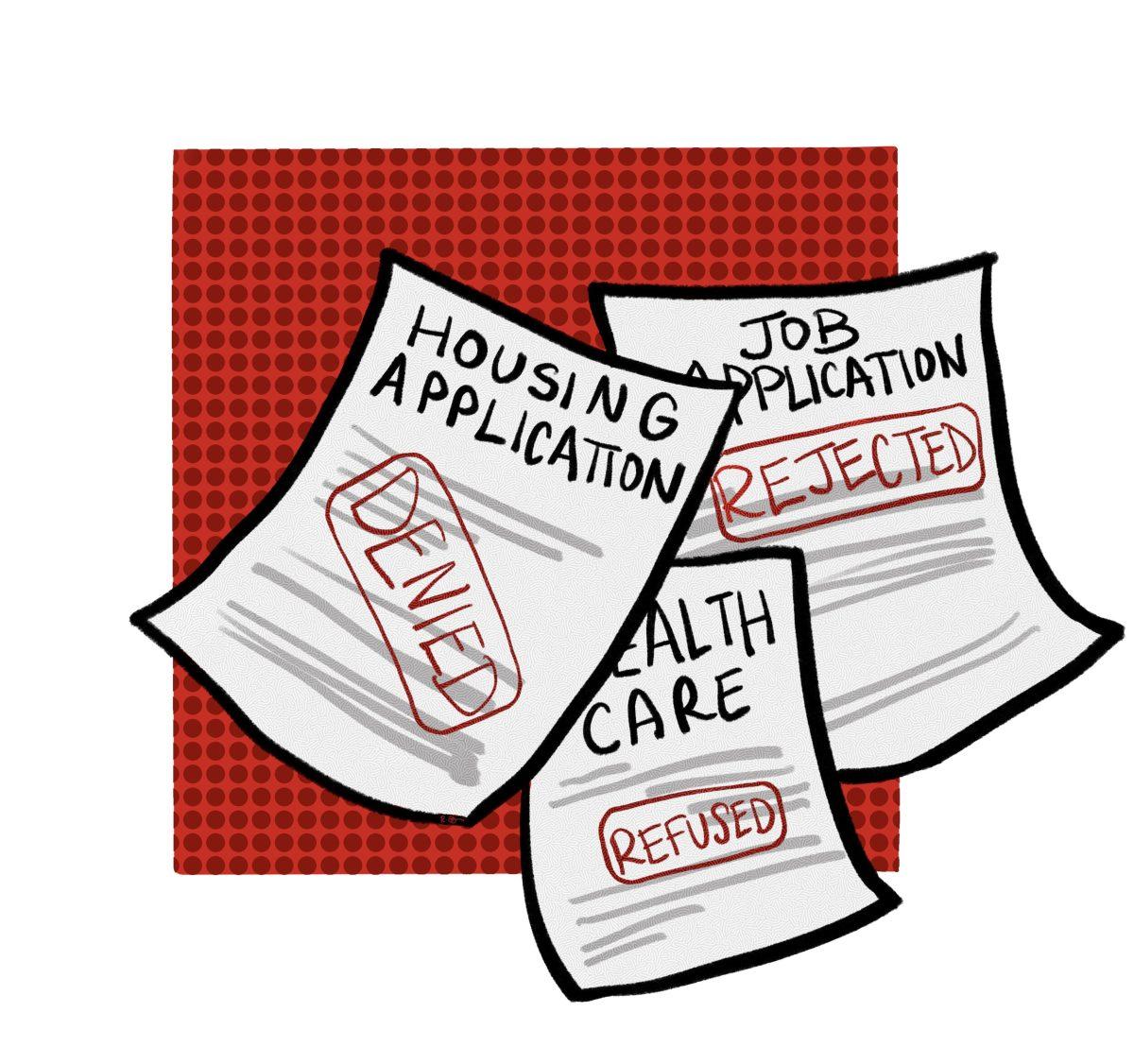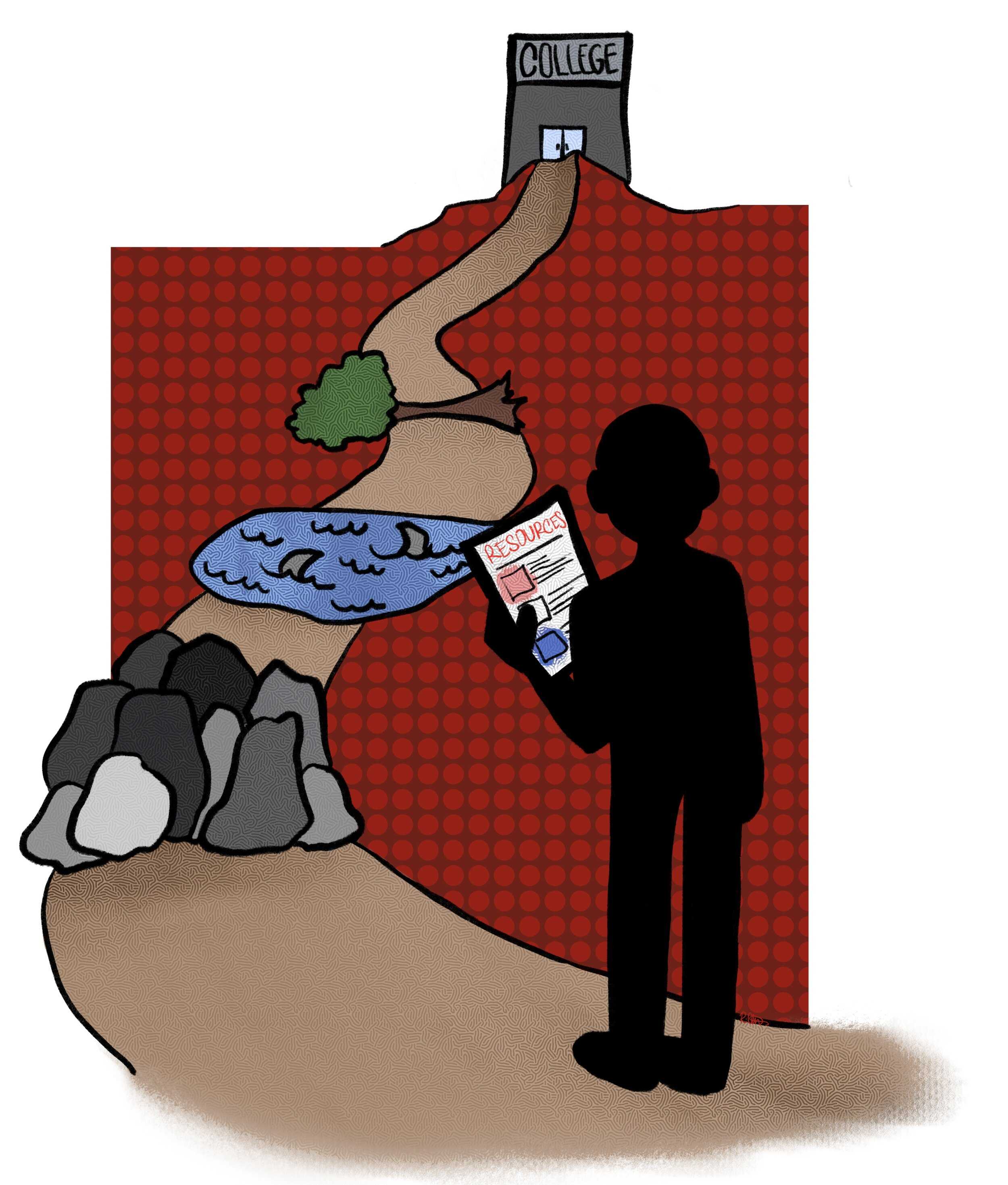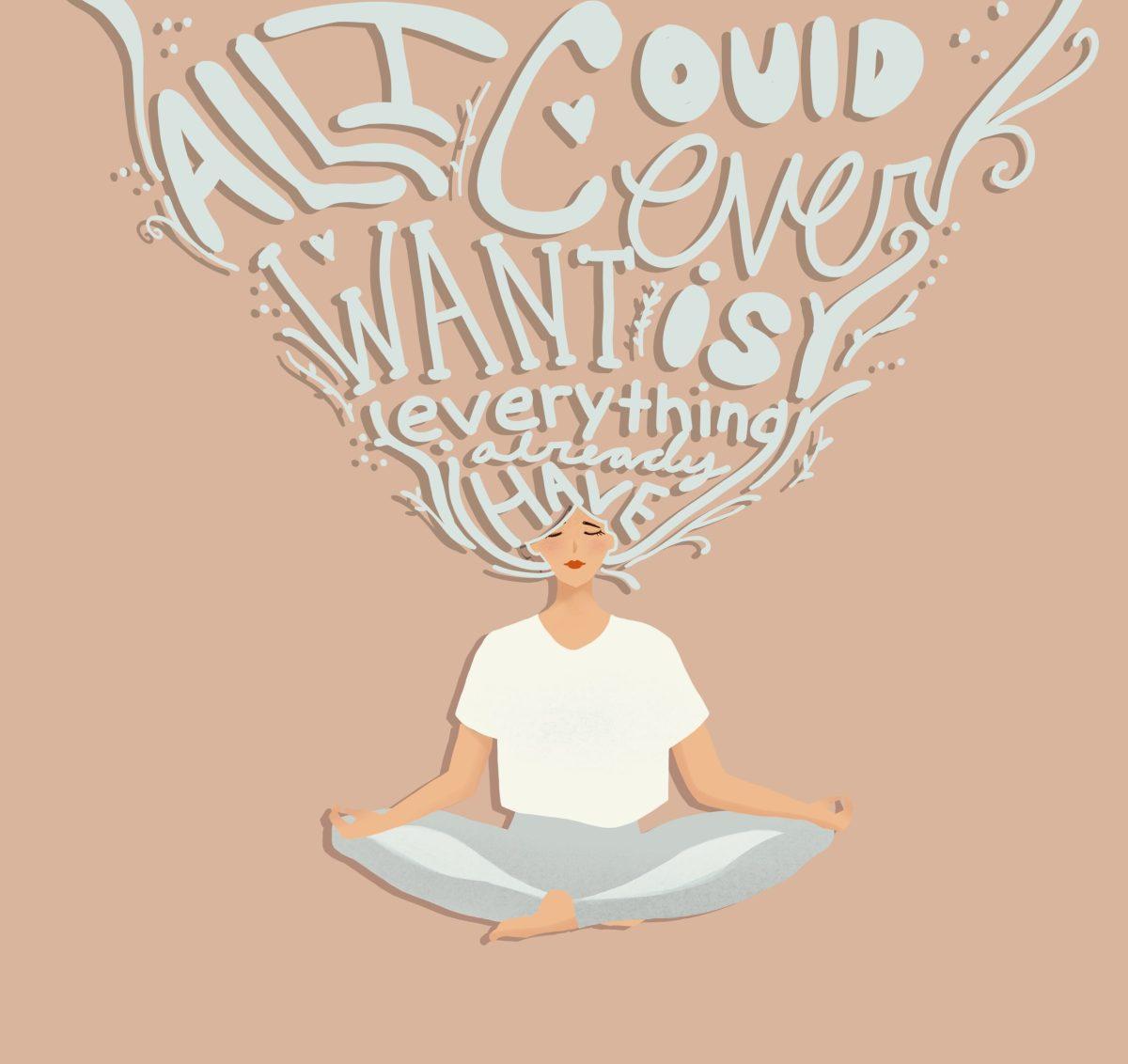Story by Vio Dorantes // @vio.en.vivo // she/her/they/theirs
Graphic by Riley Church // @artofchurch
On April 14, at precisely 8:07 a.m. I boarded the 803 MetroRapid toward the Texas State Capitol. There, the Texas House Public Health Committee would consider two bills: HB 1399 and HB 1424. Both laws threatened trans youth’s access to life-saving healthcare and the overall security of the trans community.
The day of the hearing, I completed my second month of hormone replacement therapy.
Usually, the date called for celebration, yet I could only replay the number 82 in my head — 82 filed anti-transgender bills, 82 attacks in less than three months.
Misinformation continues to be the backbone of anti-trans legislation that denies life-saving points of care. Now more than ever, it’s critical to uplift transgender-led resources and gender-affirming care in educational spaces.
But before uplifting these organizations, community leaders and allies must recognize the barriers facing trans people in their search for gender-affirming resources. The American Academy of Pediatrics found at least 1-in-4 adults who identified as transgender avoided a necessary doctor’s visit because of fear of being mistreated.
“The historical trauma of the treatment of trans people, specifically in the medical community goes very deep,” said Lais Milburn, co-director and co-founder of Black Trans Leadership Austin. “You’re looking back at a face that has traumatized you and your family in the past, and it’s really hard to be trusting.”
An accountability issue in gender-affirming healthcare remains to be fixed. The solution begins with addressing a lack of secure housing, employment opportunities, and tech accessibility in trans populations.
“There is a whole world of social determinants that impact people before they get whatever health condition they want to talk about,” said Dr. Phillips Schnarrs, an applied health researcher and expert in LGBTQ+ populations at Dell Medical School. “If we can change these things, we’ll have a bigger and broader impact.”
Once resource organizers begin to understand these barriers, true change can be made, especially in much-needed spaces like college campuses.
“College and that age is a time of a lot of change,” said Dr. Aliza Norwood, an assistant professor in the Departments of Population Health and Internal Medicine at Dell Medical School. “There is a lot related to medical care, so to have a support group for transgender youth and adults at that particular time is important.”
The U.S. Transgender Survey, found that 24% of respondents who were out as or perceived as trans in college reported being verbally, physically, or sexually harassed at that time — with 16% having left college due to harassment.
If harassment is forcing students to abandon their earned education, what is missing to make gender-affirming resources equitable in educational settings?
The issue with inclusive policies on college campuses is the follow-up, explains G.E. Loveless, a youth advocate and social entrepreneur in Central Texas.
“You can always introduce it, you can always have a conversation, but the main issue is the follow-up of course,” said Loveless.
In addition to committing to proposed policies, Rocky Lane, co-director and co-founder of Black Trans Leadership Austin, advises we support resources led by the communities it’s meant to aid.
“Donate to and uplift organizations that are led by the communities that need to be served, as opposed to trying to uphold space,” said Lane. “Stop trying to force yourself to be the bridge.”
The road to creating life-saving and equitable resources for trans youth on college campuses is bumpy, and at times disappears completely. It’s certainly not an easy path to navigate, whether you’re a medical provider, advocate, or student.
One thing is for certain though. The inclusion of these gender-affirming resources on college campuses reinforce a timeless truth: we as trans people are the future.
“We are erasing all of that past trauma and starting at a place where we have so many possibilities to do better,” said Milburn. “If we had the power to let trans people live in their full truth, the possibilities of what this world could look like are just amazing.”
Austin, and Central Texas-Based Gender-Affirming Resources:
UT Austin’s Gender and Sexuality Center
Trans Education Network of Texas (TENT)
LGBTQIA+ Healthcare at University Health Services
MASTER RESOURCE GUIDE: Courtesy of Out Youth and Transgender Wellness @ Kind Clinic













































